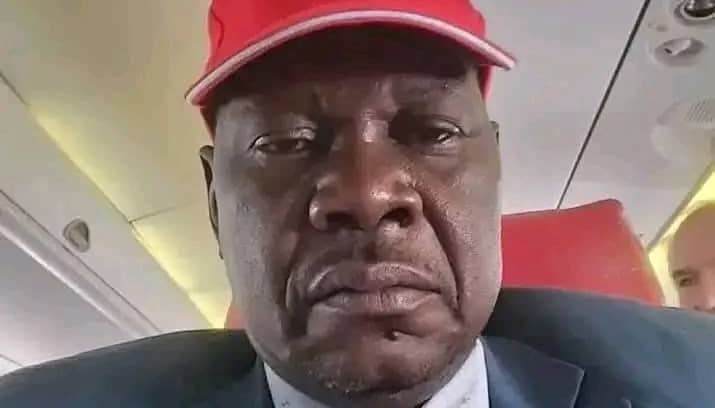
Newly appointed Western Equatoria State governor James Altaib Jazz steps into office carrying the burden of a broken peace and a region plagued by bloodshed.
Appointed Thursday night by President Salva Kiir, Altaib replaces Gen. Alfred Futuyo, a senior SPLM-IO figure dismissed in February amid spiraling violence in key counties, Tambura and Yambio where ethnic killings, political vendettas, and militia violence have destabilized the state.
Once considered a pillar of South Sudan’s post-conflict recovery, Western Equatoria has now become one of its deadliest frontlines.
Altaib’s appointment is no less controversial than the violence he is expected to quell. It marks a governorship swap from SPLM-IO to SPLM, which civil society groups and peace monitors say violates the 2018 Revitalized Peace Agreement (R-ARCSS).
He takes office amid rampant insecurity, including extrajudicial killings of lawmakers, clergy, and recently the Director General of the State Ministry of Education.
Armed groups, often tied to political elites, continue to exploit ethnic and community divisions, especially in Tambura, which remains a volatile flashpoint.
There, Altaib’s ability to restore calm and build trust will be severely tested—especially without inclusive political backing.
Yet his legitimacy is already under scrutiny. Civil society watchdog CEPO, through Executive Director Edmund Yakani, has raised strong concerns over the lack of consultation surrounding the appointment.
“We welcome the appointment of a full-scale governor, but this decision should have been made in the spirit of the R-ARCSS. It amounts to a total SPLM takeover of an SPLM-IO seat, without meaningful dialogue, just like in Upper Nile,” Yakani said.
According to Yakani, the replacement of SPLM-IO governors with SPLM loyalists in both Upper Nile and Western Equatoria signals a broader strategy that could collapse the power-sharing structure underpinning the peace agreement.
Since the detention of SPLM-IO leader Dr. Riek Machar in March 2025, the movement has fractured—split between loyalists and a parliamentary faction led by Speaker Stephen Par.
This internal division, combined with unclear consultations by the presidency, has only deepened confusion around appointments like Altaib’s.
“Continuous violations of the R-ARCSS may perpetuate instability. Two SPLM-IO governor seats have now been taken. That alone challenges the spirit of the peace agreement,” Yakani warned.
The situation reflects a deepening crisis within South Sudan’s transitional politics. Rather than uphold the agreement through consultation, the SPLM appears to be tightening its grip through unilateral action, undermining the very framework that halted civil war.
Altaib, though experienced, inherits a poisoned chalice. With unresolved political grievances, ongoing ethnic violence, and his own legitimacy in question, his ability to deliver peace will depend not only on leadership, but on whether national actors recommit to the R-ARCSS or continue dismantling it, one appointment at a time.

